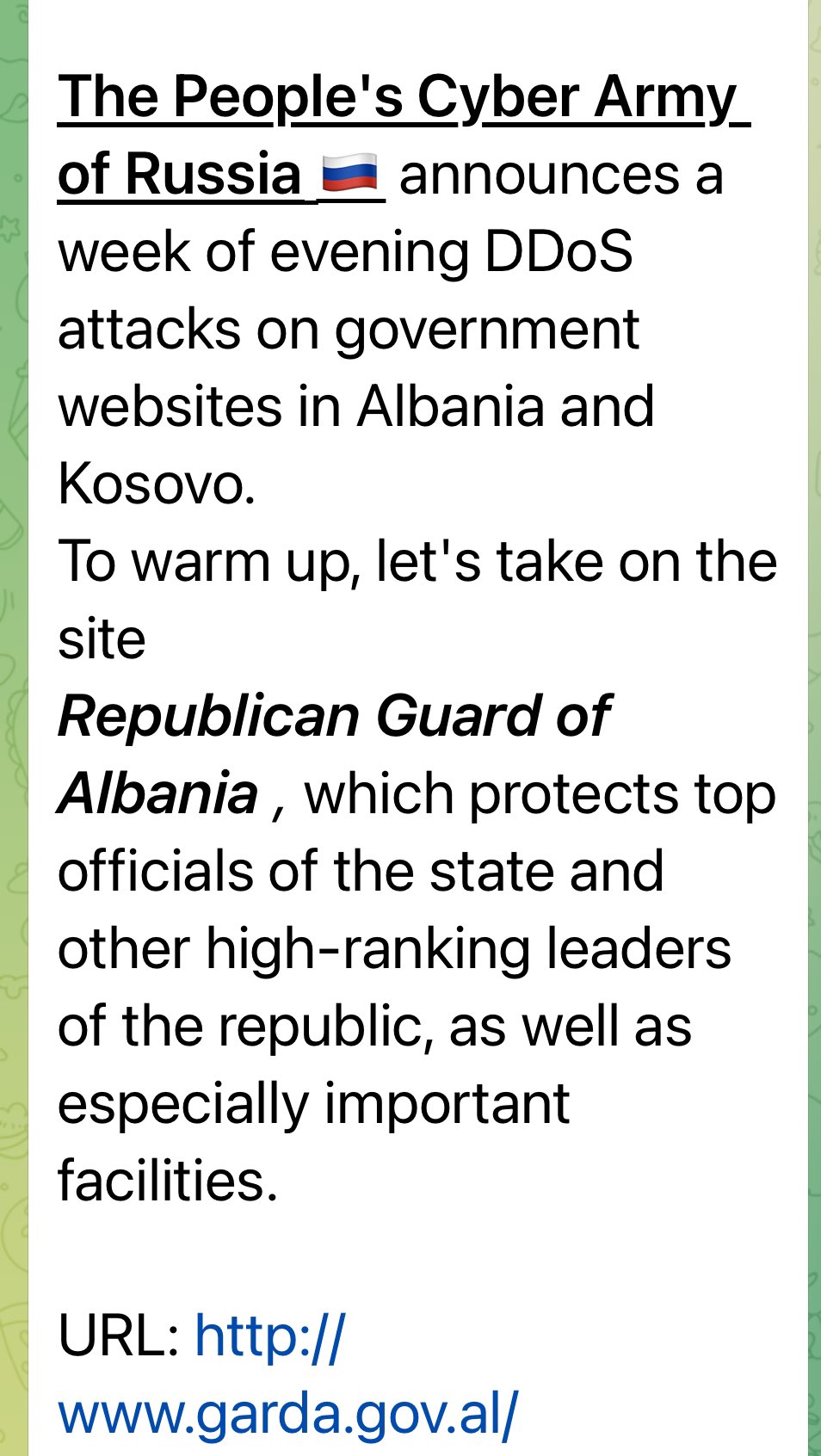In a high-stakes cyber conflict, two formidable Russian hacker groups, namely Killnet and the Cyber Army of Russia, are locked in an ongoing dispute. The Cyber Army of Russia is determined to thwart Killnet and its operations, leading to a complex battle.
Adding a new layer to this confrontation, the Cyber Army of Russia has set its sights on Albania’s Republican Guard’s website. This move is indicative of the group’s agenda, which seeks to divert Russia’s hackers’ focus away from supporting Palestinian groups in the Israel-Palestine conflict, urging them to concentrate on the Ukraine-Russia issue.
Russian Hacker Groups Clash Over Israel-Palestine and Ukraine-Russia Issue

A message, posted on their dark web channels, encapsulates the Cyber Army’s resolve, emphasizing the need to halt Killnet’s activities. The Cyber Army of Russia has announced a week-long campaign of evening DDoS attacks on government websites in Albania and Kosovo.
Their initial target is the Republican Guard of Albania, a critical institution safeguarding high-ranking officials and vital facilities.

Simultaneously, the Israel-Palestine war continues to rage, with the Israeli military reporting a staggering 6,000 bombs dropped on Gaza. While Israel asserts it is striking Hamas targets, the civilian toll in the affected areas is alarming.
Recent events have witnessed Israeli forces launching new attacks on airports in Damascus and Aleppo. With casualties reaching 2,500 on both sides, the toll of the war is tragically evident.
Ukraine-Russia Conflict still going on
Meanwhile, the tension has spilled over into other hacking groups as well, with the Ukraine cyber-conflict gaining prominence.
The two leading hacktivist groups involved in the Ukraine conflict have pledged to de-escalate cyber-attacks, aligning with the recently published rules of engagement by the International Committee of the Red Cross (ICRC).
Killnet, prominent pro-Russian hackers, have committed to abiding by the ICRC rules, marking a significant step towards a more measured approach. The group’s leader, known as Killmilk, conveyed its agreement, signaling a potential shift towards peace.
Similarly, the IT Army of Ukraine, boasting a substantial following of 160,000 members, has also committed to adhering to the ICRC’s rules. This move is expected to lead to a reduction in cyber attacks, as groups focus their efforts on official and military targets.
Media Disclaimer: This report is based on internal and external research obtained through various means. The information provided is for reference purposes only, and users bear full responsibility for their reliance on it. The Cyber Express assumes no liability for the accuracy or consequences of using this information.
